Deep Dive To Hawaii’S Sea Floor
We thought you would enjoy a visual “slide trip” to the remote northwest Hawaiian islands to explore some unique creatures living on or near the deep sea floor. Starting with early explorations of Papahānaumokuākea Marine National Monument and the Johnston Atoll Unit of the Pacific Remote islands Marine National Monument in 1988-91, fascinating geologic processes are revealed by NOAA, like deep-sea volcanoes and huge landslides. Scientists have been activly mapping and studying various atols and monuments in the region ever since. Here are some images of sea life you won’t see diving- these creatures of the deep were found in areas up to 6500 feet in depth.
Squid: Walvisteuthis youngorum
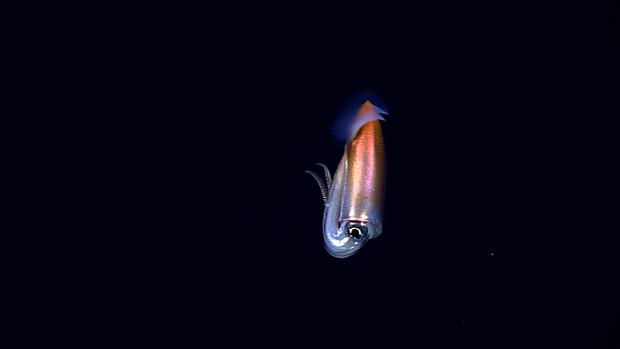
A squid, Walvisteuthis youngorum, is imaged at 2,952 feet during today’s mid-water transects off Northeast Gardner Pinnacles in the Northwest Hawaiian Islands.
Ophidiid fish
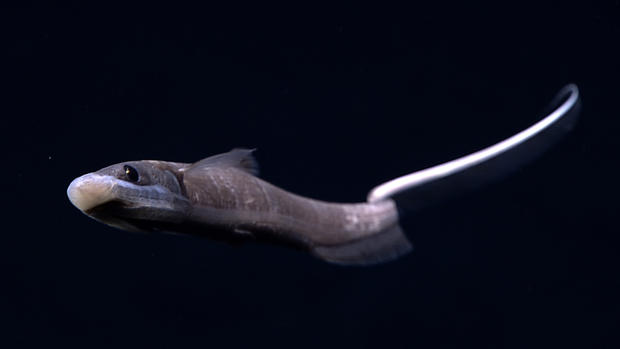
A deep-sea ophidiid fish Bassozetus sp. is photographed on a ridge off Salmon Bank in the Northwestern Hawaiian Islands.
Long-legged shrimp
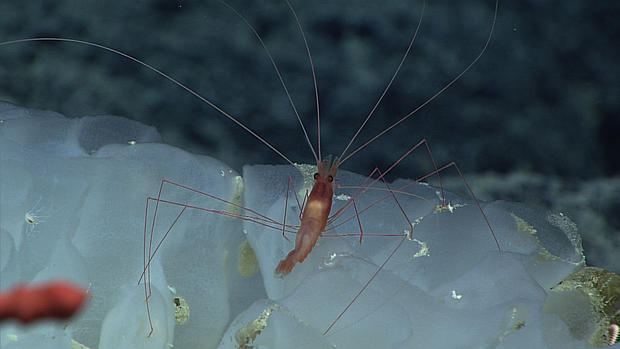
A long-legged shrimp Nematocarcinus tenuisrostris is seen, perching on a top of a glass sponge north of Gardner Pinnacles in the Northwestern Hawaiian Islands.
Solitary hydroid
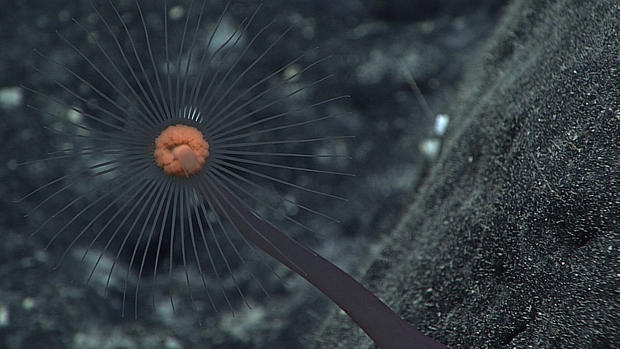
A solitary hydroid Brachyocerianthus sp. is photographed on a deep-sea ridge southeast of Pearl and Hermes Atoll in the Northwestern Hawaiian Islands.
Brittle star and deep-sea coral
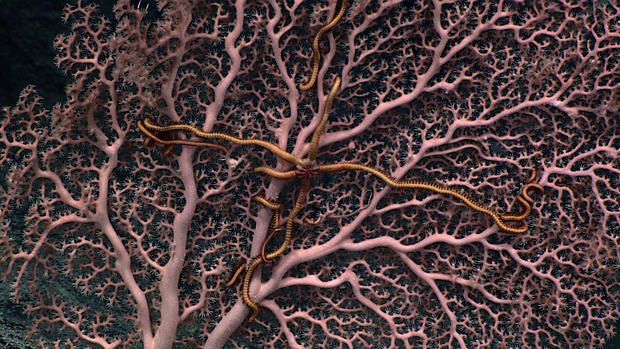
A commensal brittle star on a deep-sea pink coral is photographed at Salmon Bank in the Northwestern Hawaiian Islands.
Deep-sea anemone
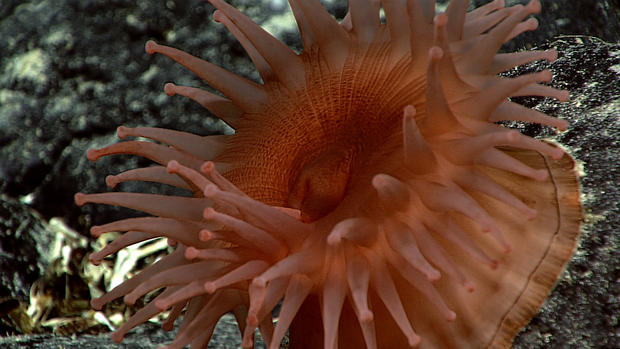
A deep-sea anemone Exocoealactis sp. is photographed on a rift zone ridge off Pioneer Bank in the Northwestern Hawaiian Islands.
Squat lobster
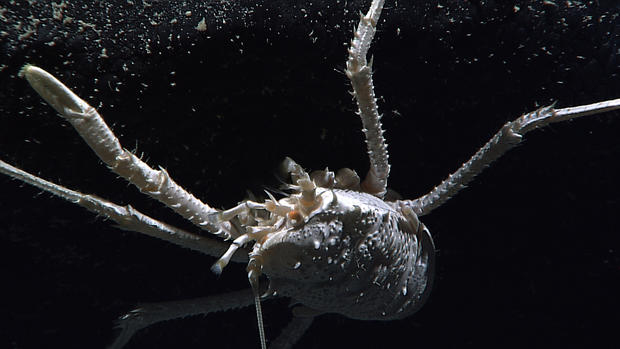
A squat lobster Munidopsis sp. is photographed at a depth of 9,071 feet on a crater east of Maro Reef in the Northwestern Hawaiian Islands.
Polychaete worm
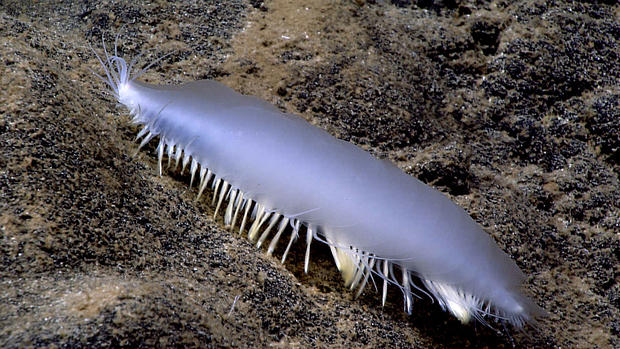
A polynoid polychaete worm imaged at 15,748 feet during the deepest dive ever conducted inside the Papahānumokuākea Marine National Monument.
Deep-sea habitat
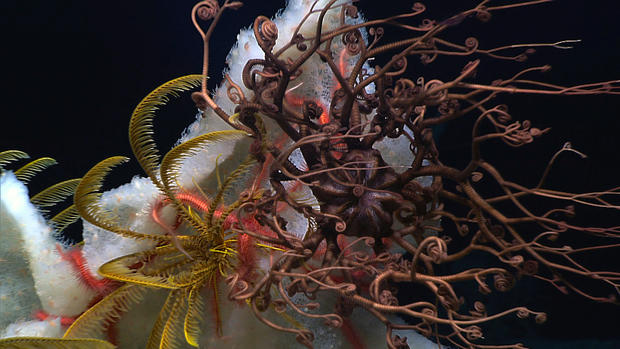
Deep-sea corals and sponges provide habitat and refuge for many other animals living on or near the seafloor. Here, a sponge covered with hundreds to thousands of tiny anemones also provides a home to several brittlestars (pink), crinoids or “sea lilies” (yellow), and a basket star (brown).
Deep-sea coral
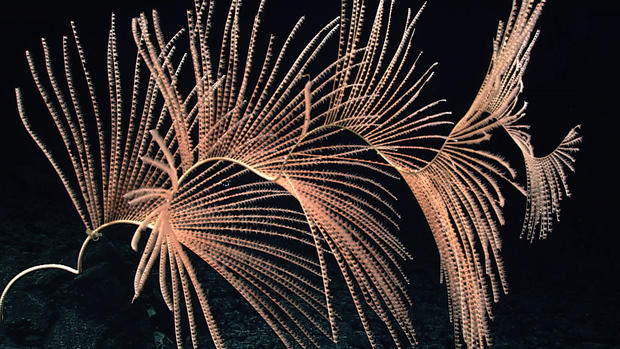
This is a deep-sea gorgonian coral Iridogorgia magnispiralis. Individuals of this species can attain sizes approaching 20 feet, thereby making them the largest deep-sea coral known to date.
Stalked sponge
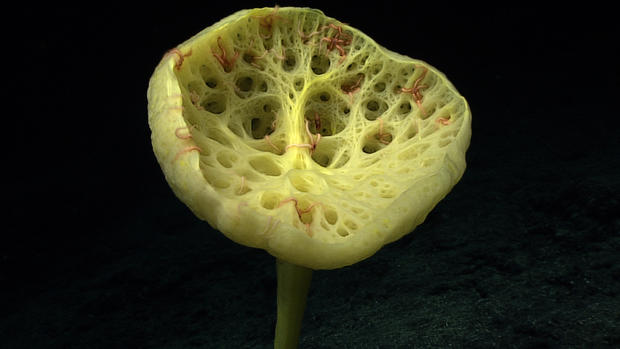
A large stalked sponge (Bolosoma sp.) provides a home for a myriad of brittlestars and crustacean associates.
Polychaete worm on a deep-sea anemone
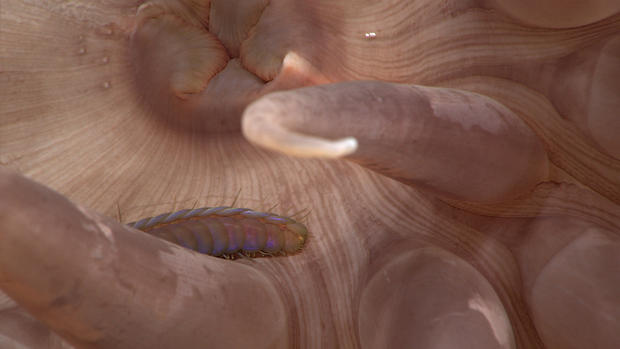
A polychaete worm rests on a deep-sea anemone north of Gardner Pinnacles in the Northwestern Hawaiian Islands.
Stalked sponge
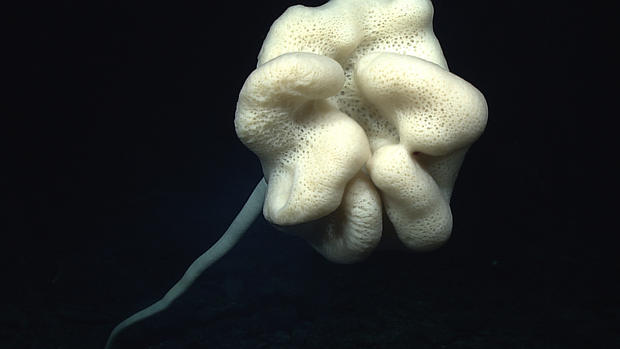
A very large spectacular stalked sponge (Caulophacus sp.) encountered during an ROV dive.
Aplacophoran
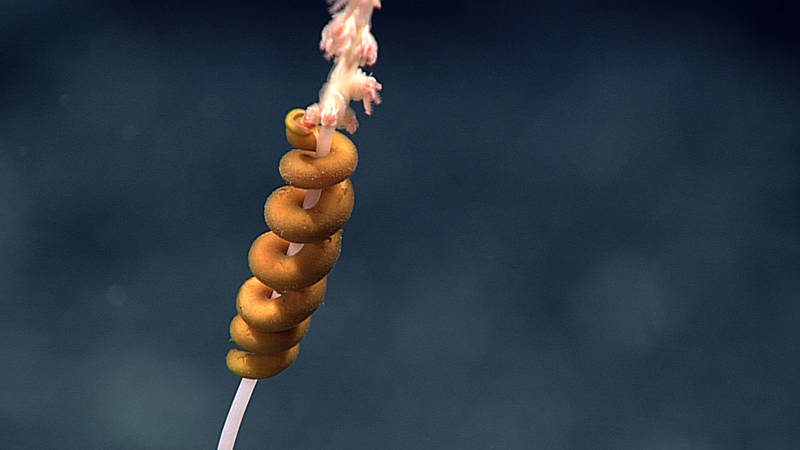
A rare observation of an aplacophoran (shell-less mollusk) feeding on a bamboo coral.
Want to see more?
Check out NOAA’s photo gallery titled “2015 Hohonu Moana: Exploring Deep Waters off Hawaii.”
